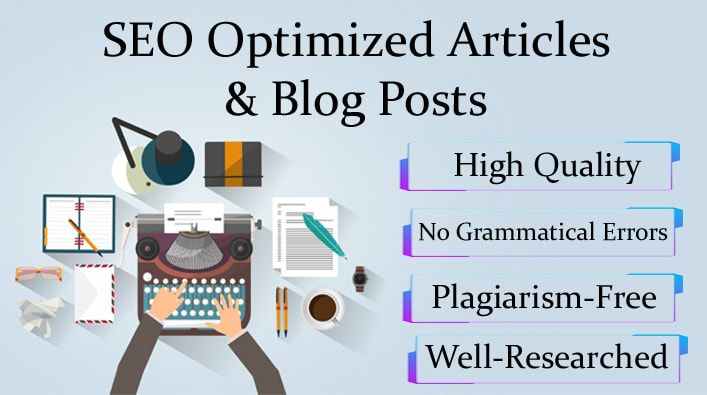Reading time: 4 min 31 sec
Are you wondering how to keyword your content for better search engine visibility? Well, wonder no more! In this blog post, we’ll share everything you need to know about keywording your content and how it can help your blog achieve better search engine results. By keywording your content, you’re ensuring that your blog content is positioned appropriately in search results, providing potential readers with the information they’re searching for. Adding keywords to your content can help you gauge the success of your SEO efforts and give you an idea of which areas of optimization are most effective.
So what are you waiting for? Start keywording your content today!


How do you find a keyword for your content?
Blogging is a great way to share your thoughts and opinions. Still, it’s also essential to know how to optimize your content for search engine ranking. For example, if you want to rank for ‘blogging tips,’ search for keywords related to blogging tips in your post’s title, description, and tags. Then use those keywords throughout the text of your post to help it rank higher on search engine results pages.
Keyword strategy is one of the most critical factors that affect the success of a blog. Content will not rank as high in search engine results pages (SERPs) without keyword optimization.
One of the best ways to write SEO-friendly content is using tools like SE Ranking Keyword Suggestion Tool, AnswerThePublic, Google Keyword Planner, or Ahrefs to find the best keywords to target.
Once you have identified a list of keywords, you can use them throughout your content to help improve your SEO.
Here are a few tips for using keywords in your content:
-
Include the keyword in the title of your article
-
Include the keyword in the first sentence of your article
-
Use the keyword throughout the article, including in the header, subheader, and body paragraphs
-
Include the keyword in the conclusion of your article
-
Use variations of the keyword throughout your content
By following these tips, you can help improve your content’s SEO and rank higher on search engine results pages.


Types of keywords to use in your content
Keyword research is essential for content marketing success. It will help you target the right audience with relevant content. Still, it can also help you optimize your content for search engine ranking. There are numerous keywords to use, so it’s important to research which ones will have the best results for your content. Keep your Meta description concise, as this is one area that Googlebot looks at most often when ranking a page. As long as you research and use the right keywords, you’re sure to bring in traffic and boost your content marketing strategy!
How to measure the success of your SEO efforts?
When it comes to measuring the success of your SEO efforts, there are a few key indicators to keep in mind. These include organic search traffic, website traffic, and email subscribers. Once you understand what works and what doesn’t, you can adjust accordingly. High ranking on search engine results pages (SERP) is key to increasing website visibility and attract more customers. Make sure all your content is optimized for search engine results pages (SERPs) and use keywords throughout the site. In the end, it’s all about measuring the results of your SEO efforts and making the necessary adjustments to keep them on track.


What topics can you cover in your blog posts?
The topics you should cover in your blog posts depend on your target audience is looking for. If you are blogging about lifestyle tips, you may want to write about fitness and healthy eating. If you are writing about business topics, you may want to write about marketing strategy or content marketing, or customer research, company growth or social media marketing, search engine optimization (SEO), or web design. You can find information on these topics by searching for specific articles or resources online. For example, you could search for “SEO tips for small businesses” or “5 best social media marketing tools for businesses.”
The first step toward setting up SEO is to offer relevant content that will be appealing to the audience. The second step involves targeting various keywords that the search engine will like.
What is a good SEO article structure?
There is no single answer to this question because the best structure of an SEO article depends on the article’s content and the targeted keywords. However, generally speaking, an influential article structure for SEO includes:
-
An introduction that provides crucial details of the topic.
-
Research findings support the main points outlined in the introduction.
-
A conclusion summarizes the main points of the article.
In addition, articles should be well written, rich in keywords, and optimized for search engine optimization (SEO). For once, a good SEO article structure is to have a meta description, title, header 1, header 2, and text content.


How can you improve your blog rankings?
There is no one-size-fits-all answer to this question, as blog ranking optimization will largely depend on the blog content and search engine algorithm. However, some basic tricks may help improve blog ranking. One is generating original content and building an audience around your blog. Optimizing blog content for (SERPs) search engine results pages is also important.
Here are some tips on how to improve blog rankings:
-
Choose high-quality content. Content that is engaging, informative, and well-written will help your blog rank higher on search engine results pages (SERPs).
-
Seek out, guest bloggers. Guest blogging can help you build relationships with other bloggers and contributors, resulting in backlinks and links that promote your blog content.
-
Develop keyword-rich titles and meta descriptions. Title tags and meta descriptions play an important role in search engine results page optimization (SEO). Tailor these elements to target your audience and keyword research to ensure your content is found by potential readers.
-
Create social media profiles and use social media marketing strategies. Use social media platforms to connect with potential readers and invite them to visit your blog.
-
Optimize website content for search engine visibility. Ensure all content is easily searchable and accessible across different devices, including desktop computers, laptops, tablets, and smartphones.
-
Conduct keyword research to target appropriate content topics and keywords. Use keyword research tools such as Google AdWords Keyword Planner or Search Engine Optimization (SEO) tools. This will help your content be identified by keywords and ranked high on search engine results pages (SERPs).


What a word for the end
SEO is an integral part of content marketing, and it’s essential to understand the basics of keyword research and content optimization to get the best results. One of the most important things you can do when you blog is keyword your content. By keywording your content, you can ensure that your blog content is easily searchable by potential readers. Additionally, by using specific keywords in your content, you can help to improve your ranking on search engine results pages.
We’ve outlined the crucial details you need to know about keyword selection and content optimization for your blog in this blog post. Make sure to check back regularly for fresh content on SEO that will help you boost your blog traffic and conversion rates!
Thank you for reading, and we hope that this blog post has helped clarify some of the details about SEO for bloggers.
By following these simple tips, you’ll be on your way to a successful blog!



